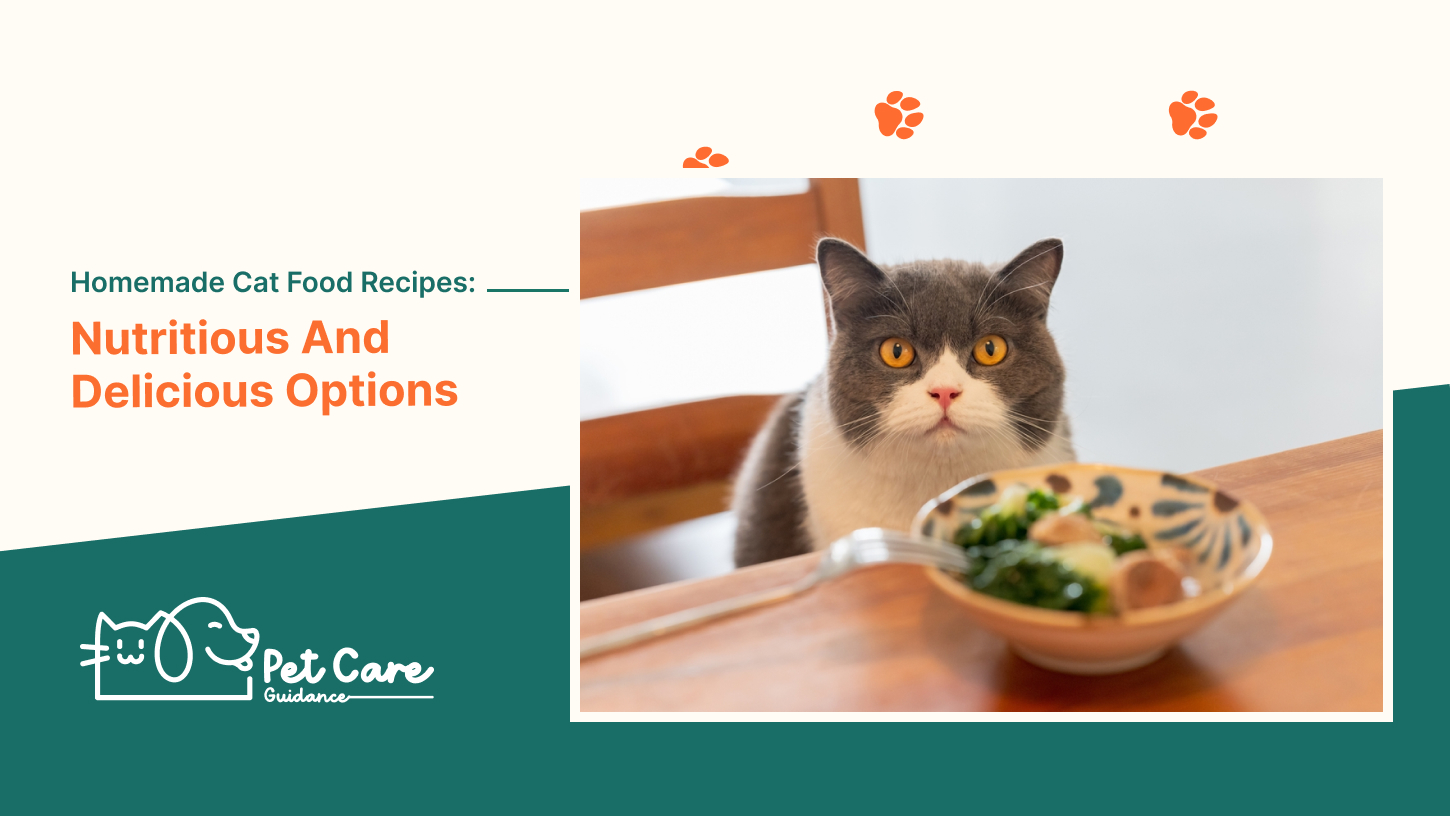Homemade cat food recipes offer nutritious and delicious options for your feline friend. It is important to carefully select ingredients that provide the necessary nutrients for a balanced diet.
By making your own cat food, you have control over the quality of ingredients and can customize meals according to your cat’s preferences and dietary needs. With homemade cat food, you can ensure that your furry companion is consuming natural, wholesome, and freshly prepared meals.
These recipes can be a great alternative to commercial cat food and can contribute to your cat’s overall health and well-being.
Benefits Of Homemade Cat Food
Homemade cat food has gained popularity among cat owners who seek healthier alternatives to commercial cat food. By preparing your cat’s meals at home, you have control over the ingredients and can ensure the quality of the food. This allows you to tailor the diet to your individual cat’s needs, promoting better health and well-being. Let’s explore the benefits of homemade cat food in more detail below
Healthier Alternatives to Commercial Cat Food
Commercial cat food often contains fillers, artificial additives, and low-quality ingredients that may not provide optimal nutrition for cats. Homemade cat food offers a healthier alternative by allowing you to use fresh, high-quality ingredients. You can choose organic meats, fresh vegetables, and beneficial supplements to ensure a well-balanced diet for your furry friend.
Allows for Customization Based on Individual Cat’s Needs
Each cat has unique dietary requirements, and homemade cat food allows for customization based on these individual needs. Whether your cat has specific allergies, sensitivities, or health conditions, you can tailor the ingredients and proportions to suit their requirements. This customization ensures that your cat receives the necessary nutrients and promotes overall well-being.
Better Control Over Ingredients and Quality
When you prepare homemade cat food, you have complete control over the ingredients and can ensure their quality. This is especially important if your cat has specific dietary restrictions or sensitivities. By avoiding artificial additives, preservatives, and low-quality fillers, you can provide your cat with a diet that is free from potentially harmful substances.
Additionally, by cooking the cat food yourself, you can monitor the cooking process, ensuring that the ingredients are cooked thoroughly while maintaining their nutritional value. This level of control and attention to detail can greatly contribute to your cat’s overall health and happiness.
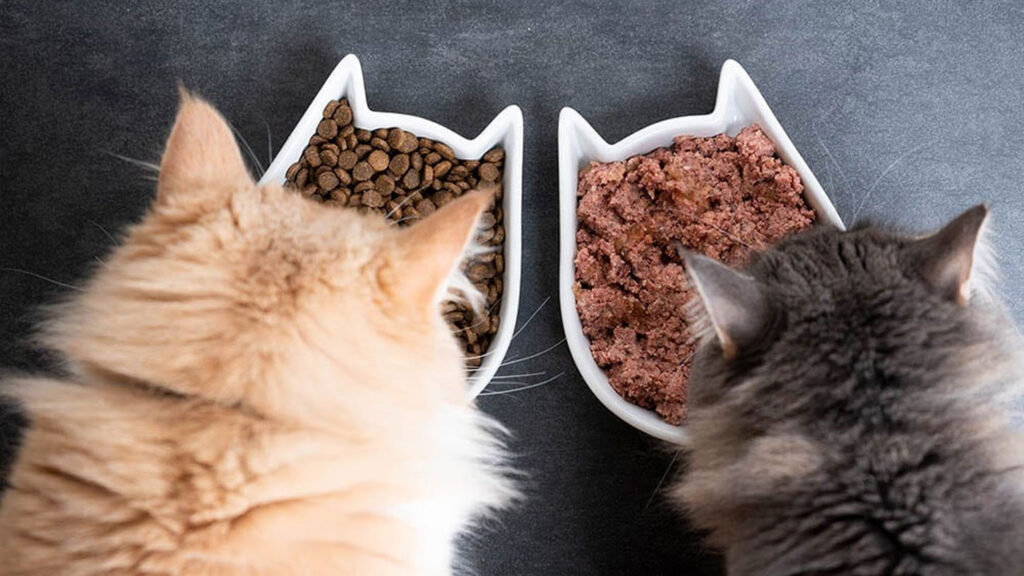
Essential Nutrients For Cats
When it comes to providing a wholesome and balanced diet for your feline friend, it’s essential to include all the necessary nutrients. This ensures their overall health and well-being. Here are some key nutrients your homemade cat food recipes should include:
Taurine: Importance and sources
Taurine is an amino acid that is vital for a cat’s cardiovascular health and vision. It plays a crucial role in maintaining a healthy heart, proper digestion, and the normal functioning of muscles. Cats require taurine in their diet as they cannot produce it on their own. Good sources of taurine include:
- Organ meats like liver and heart
- Fish, especially oily fish like salmon and sardines
- Poultry
Wild Salmon Oil or Wild Caught Small Fish Oil: Omega-3 fatty acids
Omega-3 fatty acids are essential for cats’ overall health, especially for their skin, coat, and immune system. Including wild salmon oil or wild-caught small fish oil in their diet is an excellent way to provide these omega-3 fatty acids. It can help reduce inflammation and support brain health. Make sure to use high-quality oils:
- Wild salmon oil
- Wild-caught small fish oil like anchovies or mackerel
Vitamin E: Antioxidant properties
Vitamin E is a powerful antioxidant that helps protect the cells from damage caused by free radicals. It is essential for a cat’s immune system and can support healthy skin and coat. Natural food sources of vitamin E include:
- Almonds
- Spinach
- Sunflower seeds
Vitamin B-Complex: Promotes overall health
The B vitamins are essential for a cat’s overall health and well-being. They play a vital role in energy metabolism, maintaining a healthy nervous system, and supporting healthy skin and coat. Some sources of vitamin B-complex are:
- Lean meats like chicken or turkey
- Eggs
- Whole grains like brown rice or quinoa
Lite Salt Containing Iodine: Important for thyroid health
Iodine is crucial for a cat’s thyroid health as it supports the production of thyroid hormones. It plays a role in regulating metabolism and growth. Including lite salt containing iodine in their diet can ensure they are getting an adequate amount. Some lite salt options that include iodine are:
- Morton Lite Salt
- LoSalt
Psyllium Husk Powder: Aid in digestion
Psyllium husk powder is a natural fibre that can aid in digestion and promote healthy bowel movements in cats. It helps regulate and prevent constipation. When using psyllium husk powder, make sure to follow the recommended dosage. It can be added to their homemade food in small amounts.
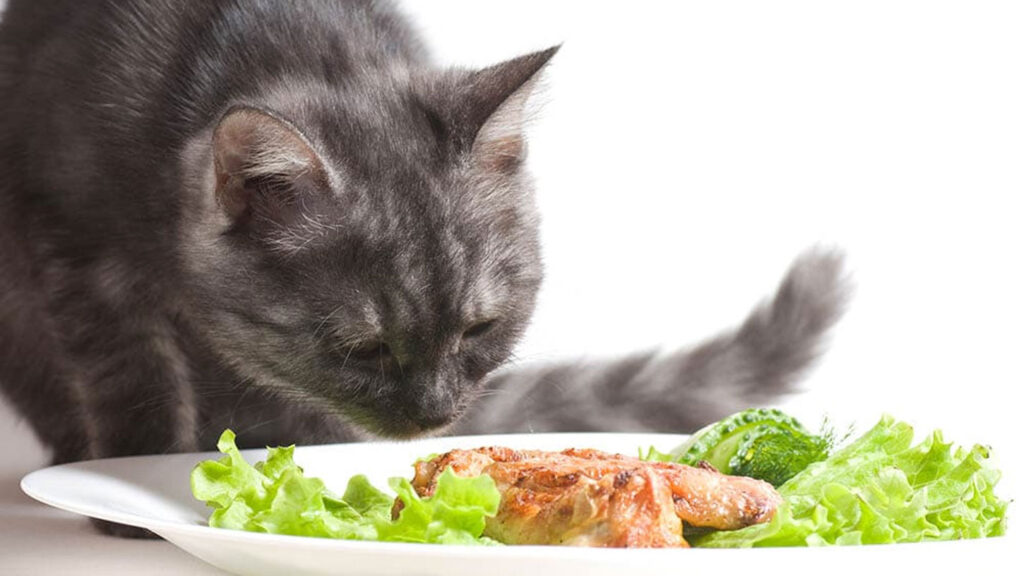
1. Boiled Chicken With Olive Oil
One of the easiest and most nutritious homemade cat food recipes is boiled chicken with olive oil. This recipe provides essential proteins and fats that are crucial for a cat’s overall health and well-being. The best part is that you probably already have the ingredients readily available in your household.
Easy to make and highly nutritious
Making boiled chicken with olive oil is as simple as it gets. All you need to do is boil chicken breasts until fully cooked and then shred the meat into small, chewable pieces. To enhance the flavor and provide additional nutritional benefits, drizzle some olive oil over the chicken. Mix well to ensure that every piece is coated. Your feline friend will definitely appreciate the simple yet delicious taste of this homemade meal.
Provides essential proteins and fats
Proteins are essential for cats as they require a diet rich in animal-based protein sources. Chicken breasts are an excellent source of lean protein, which helps support their muscle development and overall growth. The addition of olive oil adds healthy fats to the meal, which are crucial for maintaining a cat’s shiny coat and promoting a healthy skin barrier.
Includes ingredients readily available in most households
One of the benefits of this homemade cat food recipe is that it uses ingredients that are commonly found in most households. This makes it a convenient option when you want to prepare a nutritious meal for your cat without having to shop for speciality ingredients. By boiling chicken and using olive oil, you can easily provide your cat with a wholesome and balanced meal.
In conclusion, boiled chicken with olive oil is a simple yet nutritious homemade cat food option that your feline friend will enjoy. By following this recipe, you can rest assured that you are providing essential proteins and fats that support your cat’s overall health. Plus, the use of readily available ingredients makes it a convenient choice for busy pet owners.
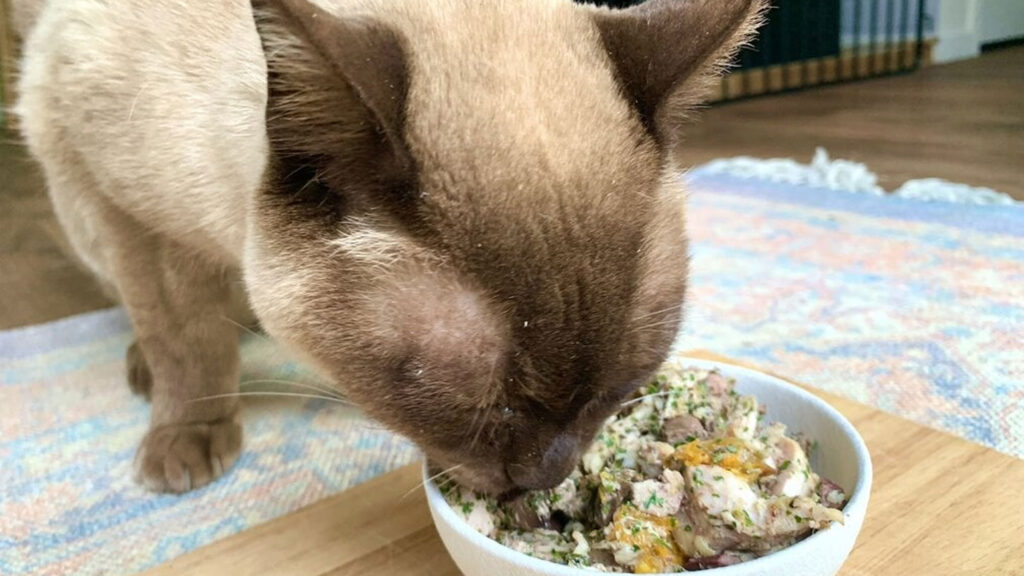
2. Fish And Chicken Recipe
Looking for a homemade cat food recipe that is not only nutritious but also absolutely delectable? Look no further – our Fish and Chicken Recipe is exactly what your feline friend needs! This recipe incorporates the goodness of fish and chicken to create a balanced meal that is packed with essential nutrients and flavours that your cat will love.
Incorporates fish for omega-3 fatty acids
One of the key ingredients of this recipe is fish, which provides your cat with valuable omega-3 fatty acids. These fatty acids are known to promote healthy skin and coat, support cognitive function, and provide anti-inflammatory benefits. By including fish in your homemade cat food, you are ensuring that your cat receives the essential nutrients they need for optimal health.
Combines proteins from chicken and fish for a balanced meal
Balanced nutrition is crucial for your cat’s overall well-being, and that’s exactly what this recipe offers. By combining proteins from both chicken and fish, you are providing a well-rounded meal that covers all the essential amino acids your cat requires. Chicken is a lean and easily digestible source of protein, while fish adds variety and additional nutrients to the meal.
By incorporating both chicken and fish, you are ensuring that your cat receives a wide range of essential nutrients, including protein, vitamins, and minerals. This balanced meal is designed to support your cat’s overall health and keep them feeling satisfied.
Suitable for cats with poultry and seafood preferences
If your cat is a fan of poultry and seafood, this recipe is perfect for them. It caters to their preferences by including both chicken and fish, creating a flavour profile that is sure to please even the pickiest eaters. By providing homemade meals tailored to your cat’s preferences, you can ensure that they continue to enjoy their meals and receive optimal nutrition.
Remember, it’s important to consult your veterinarian before making any changes to your cat’s diet, especially if they have specific dietary requirements or health conditions. They can provide guidance and ensure that this homemade cat food recipe is suitable for your furry friend.
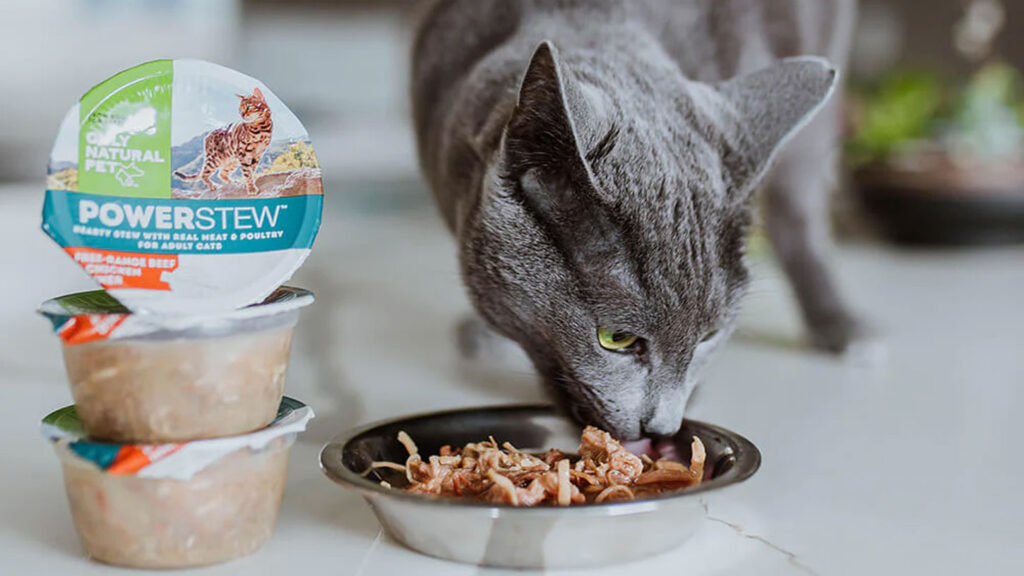
3. Grain-Free Chicken Recipe
Ideal for cats with grain sensitivities
If your cat has grain sensitivities, the grain-free chicken recipe is the perfect option for them. This recipe excludes any grains and focuses solely on providing essential nutrients from chicken. By eliminating grains from their diet, you can help alleviate any sensitivities or allergies your cat may have, promoting better overall health and well-being.
Provides essential nutrients from chicken without any grains
With the grain-free chicken recipe, your cat can receive all the essential nutrients they need from high-quality chicken. Chicken is a fantastic source of protein, which is crucial for cats’ muscle development and maintenance. Furthermore, it contains essential amino acids that support their overall health. By opting for a grain-free recipe, you can ensure that your cat receives the necessary nutrients without any unnecessary fillers.
Promotes better digestion and overall health
By feeding your cat a grain-free chicken recipe, you can contribute to better digestion and overall health. Many commercial cat foods contain grains that may be difficult for some cats to digest. Grain-free recipes, on the other hand, are easier on their digestive systems and can relieve any digestive issues your cat may be experiencing. Additionally, a diet rich in high-quality chicken can provide the necessary vitamins and minerals for optimum health, ensuring your cat stays happy and active.
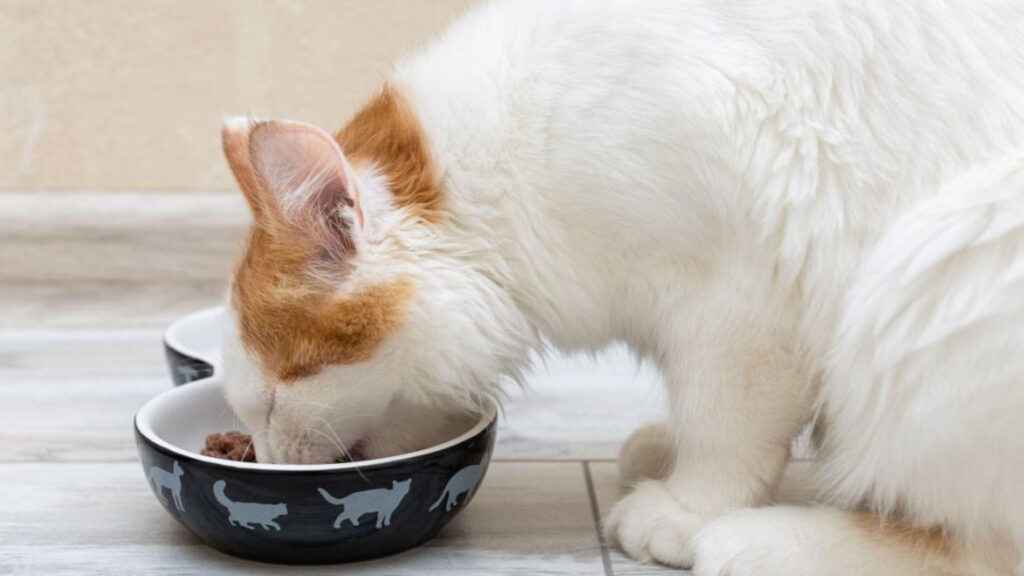
Preparing Homemade Cat Food Safely
Caring pet owners may choose to prepare homemade cat food for their furry companions. Not only does this allow you to have control over the ingredients, but it can also provide a more nutritious and delicious option for your cat. However, it’s crucial to ensure that the homemade cat food is prepared safely to prevent any potential health risks. Here are some essential guidelines to follow:
Use Fresh Ingredients
When preparing homemade cat food, always opt for fresh ingredients. Using fresh meats, vegetables, and grains will provide your cat with the essential nutrients they need. Make sure to check for any signs of spoilage before using the ingredients. High-quality and fresh ingredients will help maintain your cat’s health and well-being.
Cook Meat Thoroughly
Meat is a vital component of a cat’s diet; however, it needs to be cooked thoroughly to eliminate any bacteria or parasites. Cook the meat until it reaches an internal temperature of at least 165 degrees Fahrenheit. This ensures that harmful pathogens are destroyed, reducing the risk of foodborne illnesses in your cat.
Avoid Ingredients Toxic to Cats
Some commonly used ingredients in human food can be toxic to cats. For example, onions and garlic contain compounds that can cause damage to a cat’s red blood cells. It’s important to avoid including these ingredients in homemade cat food recipes. Stick to cat-friendly ingredients that provide the necessary nutrients without any potential harm.
Store Leftovers Properly
Proper storage is crucial to maintain the freshness and integrity of homemade cat food. Divide the food into portioned containers and refrigerate or freeze them promptly. Refrigerated leftovers should be consumed within 2-3 days, while frozen portions can be stored for up to 3 months. Always thaw frozen portions thoroughly before serving to your cat.
By following these guidelines, you can ensure the safety and quality of homemade cat food. Prepared with love and care, these nutritious and delicious recipes will provide your feline companion with a wholesome and satisfying meal.
Consulting With A Veterinary Nutritionist
When it comes to preparing homemade cat food recipes, it’s crucial to consult with a veterinary nutritionist. Seeking professional advice is of paramount importance for ensuring the well-being and optimal health of your feline friend. While there is an abundance of free recipes available online, not all of them guarantee the balanced nutrition that your cat needs. A veterinary nutritionist possesses the expertise and knowledge to tailor recipes to meet your cat’s specific dietary needs.
Importance of Seeking Professional Advice
Consulting with a veterinary nutritionist is essential because they have a deep understanding of feline nutrition requirements. They can help you customize homemade cat food recipes that are suitable for your cat’s age, weight, underlying health conditions, and any allergies or intolerances they may have. By collaborating with a veterinary nutritionist, you can ensure that your homemade cat food provides all the necessary nutrients for your cat’s overall well-being.
Tailoring Homemade Cat Food Recipes to Specific Dietary Needs
Each cat has unique dietary needs, and it’s crucial to address them to keep your cat healthy and thriving. A veterinary nutritionist can assess your cat’s specific requirements and provide guidance on tailoring homemade cat food recipes accordingly. Whether your cat needs a low-fat diet, higher protein intake, or specific supplements, a nutritionist can help you make appropriate adjustments to the recipes to meet those needs.
Ensuring Balanced Nutrition for Optimal Feline Health
Understanding the nutritional components essential for feline health is crucial in preparing homemade cat food. A veterinary nutritionist can guide you in ensuring your cat’s homemade diet is well-balanced, providing all the necessary vitamins, minerals, proteins, and fats. This balance is crucial for maintaining a healthy weight, promoting good digestion, strengthening the immune system, and preventing potential health issues.
By working with a veterinary nutritionist, you can have the confidence that you are providing your cat with the nutrition they need to thrive. Your nutritionist can guide you in choosing the right ingredients, and proper portion sizes, and ensure that the homemade cat food recipes meet all the necessary nutritional requirements.
Frequently Asked Questions Of Homemade Cat Food Recipes: Nutritious And Delicious Options
What Nutrients Should I Add To My Homemade Cat Food?
To ensure your homemade cat food is nutritious, add these essential nutrients: taurine, wild salmon oil or fish oil, vitamin E, vitamin B-complex, lite salt with iodine, and psyllium husk powder. Check with a veterinary nutritionist for proper guidance.
What Is The Healthiest Thing To Feed Your Cat?
The healthiest thing to feed your cat is a homemade cat food recipe that includes meat, liver, salmon oil, eggs, and optional ingredients like vegetables. Homemade diets can be a good option when done correctly by a veterinary nutritionist.
How To Make Healthy Cat Food At Home?
To make healthy cat food at home, follow these steps: 1. In a large mixing bowl, combine a quarter of a pound of boiled chicken and about a tablespoon of olive oil. 2. Add two eggs to the mixture and mix well.
3. Cook the mixture in a pan until the eggs are fully cooked. 4. Let the cat food cool before serving it to your furry friend. Note: It’s important to consult with a veterinarian to ensure your homemade cat food meets all of your cat’s nutritional needs.
Is Homemade Food Healthier For Cats?
Homemade cat food can be healthier if done correctly by a veterinary nutritionist. Cats can do just as well on a homemade diet as a commercial one, or even better according to some experts. It’s important to ensure the diet includes essential nutrients like taurine, wild salmon oil, vitamin E, and B-complex vitamins.
Conclusion
Homemade cat food recipes offer a nutritious and delicious option for your feline friend. By using fresh, wholesome ingredients such as chicken, fish, and eggs, you can ensure that your cat is getting the essential nutrients they need. Homemade cat food allows you to have control over what goes into your pet’s diet, avoiding fillers and additives found in commercial options.
With a little research and preparation, you can provide your cat with a healthy and satisfying meal that they will love.


